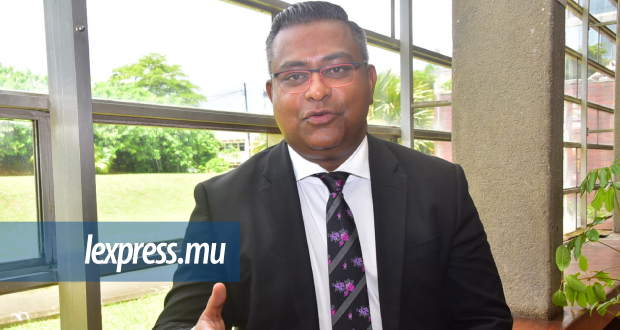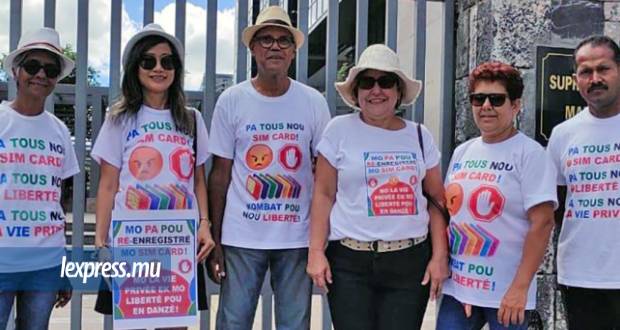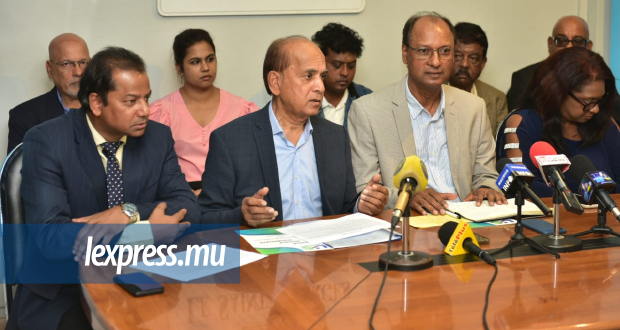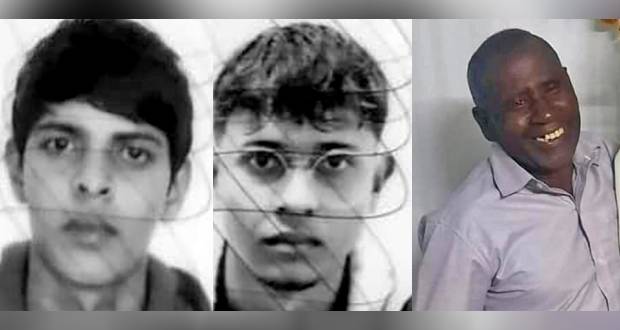Publicité
Ruben Dyall: “If you are in the 4% at risk of succumbing to Covid, I have bad news for you”
Par
Partager cet article
Ruben Dyall: “If you are in the 4% at risk of succumbing to Covid, I have bad news for you”

Ruben was a real discovery. He contacted me in relation to his passion for research into dinosaurs and fossils in general. Then I learnt about his profession as a vaccinologist, who holds loads of the information we are currently so thirsty for. His ideas on Covid are refreshing and challenge some of the ideas we hold.
“When the family member of a vulnerable person has responded to the vaccine, s/he would not be a ‘healthy’ carrier. Even when s/he is exposed to the virus, s/he would clear it immediately. Therefore, s/he would never be a vector that could transmit the virus to the person at risk.”
When I first heard about you, it was in the field of dinosaurs. Then I found out you were a vaccinologist. Can you give our readers a brief idea of what you have been doing so far?
In a nutshell, I am a biologist. I hold a Ph.D. from Cornell. I am an immunologist specialised in Subunit Vaccine. I did some pioneering work on Genetic Vaccines from 1995 to 2000 and I hold a few patents in that field. Following 9/11, I participated in war game meetings around counter measures against engineered organisms.
And after a number of years, you decided to leave everything behind and come back home. What has brought you back?
The quest for happiness made me decide to link my future to that of the island. But the decision to come back was not mine: It was my poor state of health that forced me to come back. And I am very happy that it happened.
Apart from chasing happiness, what have you been doing?
I am not just chasing it: I caught it! I am doing dry research on biology-related projects that would help the development of Mauritius. And that is an integral part of my happiness.
Sounds grand!
Probably but I am still extremely pigheaded and have the maturity of a toddler.
As a vaccinologist, you have kept a very low profile in relation to the debate that has been raging about Covid-19 and vaccination. Why?
I waited for six months following the start of vaccination to have a better idea of what is going on before getting involved. I am a scientist, not a health professional who has taken the oath. As such, I cannot give medical advice. I find myself in a difficult position. If I open my mouth as a vaccinologist and start voicing my opinion, this could be interpreted as medical advice. Also, the issue is too politicised, which motivated me to keep out of it.
Now that the magical six months are gone, tell us how we got caught in this situation in the first place.
End of January 1848, an imbecile disturbed a river bed while building a saw mill in California. That was an extinction event for our civilisation. The USA has too much influence on the world. There are hundreds of thousands of victims of Plasmodium (Malaria) and Trypanosome (Chagas Disease) every year but since they do not affect North America, little has been invested in vaccine research. We got caught skirts up and pants down as there is a 25-year lag in vaccine development. Getting caught by an emerging organism is inevitable. It is a fact of life. However, with the appropriate investment in basic vaccine research and infectious disease research, we would have been able to respond better.
“The team who has successfully prevented Malaria from infesting Mauritius, who has kept Dengue at bay, and also effectively controlled Chic had the right training, experience, stamina and devotion to the flag to deal with Covid.”
Is there any end in sight? As soon as we think we are making headway, another variant hits us.
Mauritius is at the end of it because of our aggressive vaccination policy. A variant spreads quicker and affects only the non-vaccinated population and the vaccinated population that has not responded to the vaccine.
What do you mean?
The vaccinated population has a resident population of memory lymphocytes that would respond immediately upon viral infection preventing the virus from causing any harm. The vaccination strategy produces cells that secrete antibodies against short portions of the viral proteins called antigenic epitopes. The human body is programmed to select the most appropriate elements to fight the virus: the best antibodies and the epitope that produces the best antibodies. This is called immuno-dominance. The variant is caused by a mutation that makes it more annoying. However, the probability that the mutation that produces the naughty variant also destroys the immuno-dominant epitope is statistically zero. Therefore, if you have responded well to the vaccine, variant or no variant is not an issue. Having nastier variants is nothing more than Darwin’s Theory and is something that is expected to happen. However, once the bulk of the country has been protected by the vaccination campaign and there is a continued strict observance of the sanitary measures, the variants should not affect us more than the wild type.
So why are people who we suspect have been vaccinated still dying?
A virus is very small and is extremely successful as it hijacks the proteins and other molecules of the host. Very few viral molecules are present in the host’s body. As such, it is difficult to design conventional chemical drugs to fight them, as these would need to be specific for the viral molecules. It would take years for these chemicals to become available. In the case of HIV, it took decades. Our only defence is our immune system. Those who can develop this response will live, those who cannot, will die (except for the few lucky ones who have plasma transfer). The role of hospitalisation is limited to keeping the patient alive long enough, and well enough to allow this immune response to kick in to clear the virus. Those who develop this response are ‘immuno-competent’; those who cannot are ‘immuno-deficient’.
If ‘our only defence is our immune system’, what is the use of the vaccine?
The answer is disarmingly simple: the immune system can sense danger and gets activated in response to it. The immune system is an incredible war machine that is at rest in times of peace. However, once it senses danger, it gets activated and mounts a formidable response. That is the case in an immune-competent person. A vaccine is an elaborate ‘sting’ operation, designed by smarter people, (i.e. vaccinologists) to con the immune system to respond in the absence of the real danger. A vaccine has all the components to make the immune system believe that it is facing a real danger. As a result, the body responds as it would when faced with the real danger. Following this, the activated lymphocytes are in a state of readiness that allows them to react quicker and more efficiently when confronted with the real danger. Therefore, if an individual is immune-deficient, he will not be able to respond to both: vaccine and virus.
And when does an immuno-competent person start benefiting from a vaccine?
The moment that the nurse sticks the needle into his/her arm! The moment that needle is in your arm, every minute that goes by before the real virus attack, you get stronger and the virus cannot get stronger.
So far, those at risk have been given priority in vaccination. Is that wise?
No, just the opposite! A vaccine fools the body to elicit an immune response in the absence of the real danger. Somebody who is immuno-deficient (the wise ass way of saying ‘a person at risk’) who would not be able to respond to the virus, would not be able to respond to the vaccine. The problems are numerous: first, the logistics: whether the person goes to the vaccine, or the vaccine comes to the person, the nurse shooting him/her is a source of virus: s/he has been in contact with a lot of Mauritians. But the most dangerous issue is the false sense of security that the uninformed person at risk would have and that would make him behave as a normal person. It’s simple mathematics. ‘I have a 4% chance of being at risk. The vaccine is 96 % efficient. The vaccine reduces my risks to 1%.’. That is a mistake that gets people killed because we are looking at two ‘related events’, not two ‘independent events’. If you are in the 4% at risk, well, I have got news for you: You are also in the 4% who are not going to respond to the vaccine. So, deal with it.
“A variant spreads quicker and affects only the non-vaccinated population and the vaccinated population that has not responded to the vaccine.”
How do you ‘deal with it’? I mean how do you ‘protect’ people who would not respond to the vaccine and who might catch the virus and not be able to fight it.
By reducing the probability of their coming across an infected person. That is, through the vaccination of as many Mauritians as possible, self-isolation and following all the safety measures. Put them in a bubble, deliberately drilling a hole in that bubble to allow only ‘vaccinated’ family members or other caregivers to come into physical contact with the immunocompromised Mauritians. In that kind of situation, we would need to give absolute priority to their family members when we design the vaccination campaign.
Vaccinated family members can transmit the disease in the same way as unvaccinated ones, can’t they?
Absolutely not! When the family member has responded to the vaccine, s/he would not be a ‘healthy’ carrier. Even when s/he is exposed to the virus, s/he would clear it immediately. Therefore, s/he would never be a vector that could transmit the virus to the person at risk. Given the mess that happened in France, we need to re-evaluate whether we would concentrate many immunocompromised Mauritians in a few locations and try to ensure a high-safety structure, taking the risk that if one gets infected, that would spread like wild fire, or isolate them and rely on family members or care givers to take individual care of them. Not wasting money stupidly on manicures and cigarettes. Since the start of the interview I have been dying to say that.
Now, it has been said! In general, would you say that we managed the Covid epidemic well?
Extremely well. I believe that the team who has successfully prevented Malaria from infesting Mauritius, who has kept Dengue at bay, and also effectively controlled Chic had the right training, experience, stamina and devotion to the flag to deal with Covid. The country should acknowledge the crucial role they played once we clear the mess.
Are we about to clear the mess?
As far as I am concerned, Covid is over. We won. But at what cost? At the very least Rs100 billion, an economy in ruins and I cannot evaluate the human cost.
How can you say it’s over when there are people still dying every day?
From my point of view, that of a scientist, I am no longer concerned with Covid. The vaccines are here, and there is nothing more that we can do about it. Clearing the Covid mess now is in the hands of other members of the society. I am shifting my interests completely onto using our experience with Covid to get the country prepared for the next infectious disease. We have to face the facts: emerging organisms will continue to strike us. It is only a question of time before we will need to deal with the next virus.
What are you basing yourself on?
On my experience in that field. I beg the government to immediately set up a body that would start dealing with the next bug. We cannot prevent it, but we would be able to alleviate its effects by managing it better. Right now, we have an enormous amount of information related to Covid. We need to start analysing, processing and saving this information, that is mostly in the brains of our frontliners, before we lose it. We need to understand what we did right and what we did wrong. We need to understand what we did and what we did not do.
Another commission of inquiry?
Not at all! What I am after is not a punitive action. The only definition of intelligence that I find ‘intelligent’ is the one used by anthropologists: the ability to learn from experience. We need a body that would involve a few different ministries (Justice, TIC, Social Security etc.) but that would be coordinated by health professionals to play war games and get ready for the next one.
And what should this ‘body’ do?
I will give you only one example of what it should be doing. Who are the ‘people at risk’? Technically 4% of the population, but with the current definition of ‘comorbidities’, or whatever dumb term they have for it, when we add up everything, we end up with more than 75% of the population in that group. One of the first priorities of that ‘body’ would be to set up a group of physicians with a carefully designed questionnaire who would interview the people who could be at risk on their medical history to clearly define and delineate that population. Then, as soon as we feel that the next bug is coming, we can start protecting this population. Also, it would help a lot to know how many Mauritians we are talking about to be able to plan, organise and protect them better. There are more than a hundred such activities that I have in mind of what this body should be doing. That includes advising ministries on managing risks in the future investments of the country.
You are talking about big money here…
Yes, it will involve a high cost but its influence on the next bug would be enormous and would save us more than 1000 times what it would cost us. Although we are going through very tough times financially, the government should find the funds to set up this body as soon as possible. If you are going to play an important football final, you want to have home advantage.
Publicité
Les plus récents






